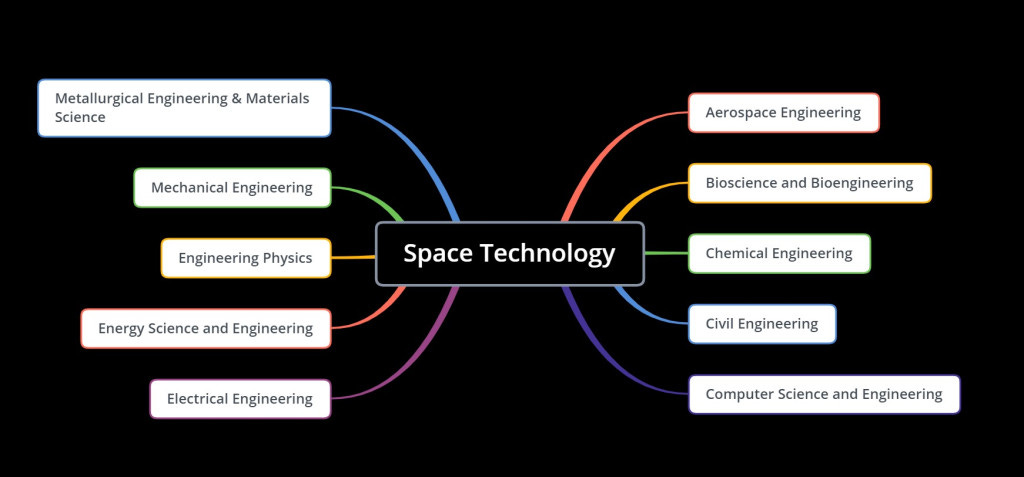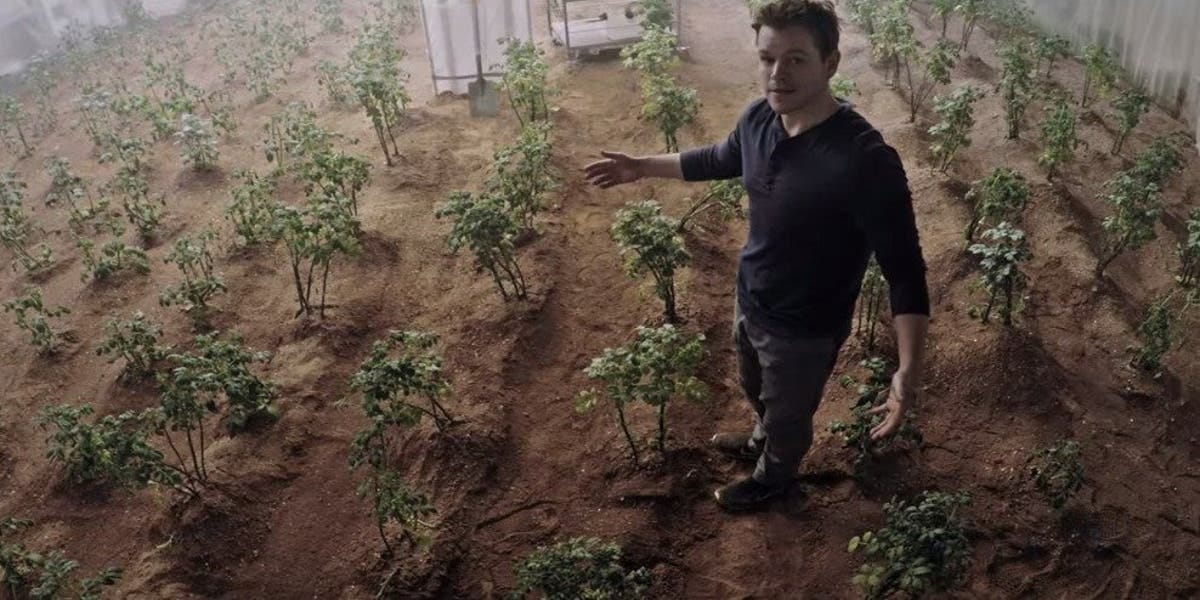Monday Mentoring: How Engineering Disciplines other than Aerospace can contribute to Space Industry?
All engineering disciplines contribute to make space technology possible.
In the last Monday Mentoring Article, many myths about Aerospace Engineering were debunked.
Let us start this article by debunking another one: "Want to work in Space, Take Aerospace Engineering". Aerospace engineering is the discipline that gives the overall understanding of space technology. However, it is the era of interdisciplinary science and technology. With the ever increase in knowledge database of humanity, it is not possible for only a set of individuals. Everyone from different background needs to come together and develop new technology. Therefore, I answer "How Other Engineering Disciplines can contribute to Space Industry?" in this article.
Biosciences and Bioengineering
You may remember "Mark Watney" from the movie (or book) The Martian. For humans to survive in space, we require many systems such as Life Support System and Spacesuits. Not only these systems, for long-duration human spaceflight psychological and social (Humanities) aspects of astronauts become essential as well. Along with medicine and anthropology, bio-engineers also work on microorganisms studies, to understand the evolution of life. With the possibility of microbial life on moons of Jovian planets, these studies would prove essential.
Chemical Engineering
This one can be explained in simple words as "Rockets require fuel." Chemical engineering is the branch which designs 'chemical processes' to manufacture chemicals in large quantities and efficiently as required by the industry. Chemical engineering is essential for inventing new processes for green fuels for both rocket motors and small thrusters for spacecraft.
Civil Engineering
It may not be very intuitional how civil engineers can contribute. But it is one of the crucial disciplines for future space settlements on moon and mars. Various structures to be built would face the challenges of low gravity, pressurised internal environment and protection for space radiation. Civil engineering researches on innovating structures to be built from the materials available on site at these planetary bodies (In-Situ Utilisation). Not only this, one of the significant satellite applications: remote sensing is also a division studied under Civil engineering.
Computer Science and Engineering
With the advent of computers, every field studied on this earth utilises computer science for studying more complex problems. "Space doesn't give a second chance", and "Testing area technology is hard", these two sentences explain the need of performing hundreds of simulations before flying space hardware. All these simulations require a lot of computing power.
Along with simulations, the spacecraft needs to be autonomous. With machine learning and artificial intelligence, we may have a supercomputer like "Hal 9000" from 2001: A Space Odyssey in the future. Though, I do hope the AIs of the future don't end humanity as with almost all Hollywood movies.
Electrical Engineering
Another engineering discipline with applications over many domains. Spacecrafts require intricate electronics which can survive the hard space environment while working on meagre power resources. It is the job of electrical engineers to design hardware capable of overcoming the challenges of space radiation and severe temperatures while consuming less power. Not only this, but they also need to have less weight and small size.
Energy Science and Engineering
As discussed above, spacecraft is limited in energy resources. Energy science, along with electrical engineering develops better solar panels to convert a maximum of the solar energy to usable power. Future space colonies would require energy scientists and engineers to develop energy methods to sustain hundreds and thousands of humans.
Engineering Physics
Engineering physics is an amalgamation of physics and electrical engineering. They are responsible for understanding multi-body dynamics simulations which further help in determining the position of various celestial bodies. Physicists also develop various astronomy and micro-gravity payloads. Physicists develop even the optics required for remote sensing applications.
Mechanical Engineering
Mechanical is the closest branch to Aerospace engineering. Almost all aspects of mechanical can be extended to space applications. I would discuss the domains, I know. Structural and thermal design of the spacecraft and rocket is essential. It requires new innovative methodologies such as honeycomb plates for structure or origami mechanisms for solar panel deployment. Mechanical engineers can work on any of the four divisions of aerospace (Structures, Propulsion, Aerodynamics, GNC) based on their expertise.
Metallurgical Engineering & Materials Science
You may have heard about Space Elevators. One of the major roadblocks towards making one is material. We don't have materials to sustain high forces. It is not limited to this. We have almost reached the summit of launch vehicles with present technology. With breakthroughs in either propulsion or advanced materials only, we can have large growths in future. Satellites are slowly shifting to using 3D printing or composite materials instead of aluminium. Basically, from cryogenic engines to re-entry vehicles and even electric propulsion, all require a breakthrough in material science.
In summary, all engineering disciplines can contribute to space technology. Therefore, choosing an engineering branch should be based on the curriculum. Find what is interesting to you. Later, one can apply the knowledge to a space domain.
Aerospace Engineering
Now, it may seem, that aerospace engineering as a separate branch is not essential. Aerospace engineers make sure that all these different experts come and work together. Aerospace engineers, therefore, need to understand the essence of all engineering domains to be able to integrate the different subsystems into a functioning complex space system.
I hope a lot of your opinions changed after reading this article and you got much more informed. I'll urge you let me know about other topics and questions you have related to aerospace engineering though the following form or you can leave a comment. I'll make sure to cover them in next few Monday Mentoring posts.




